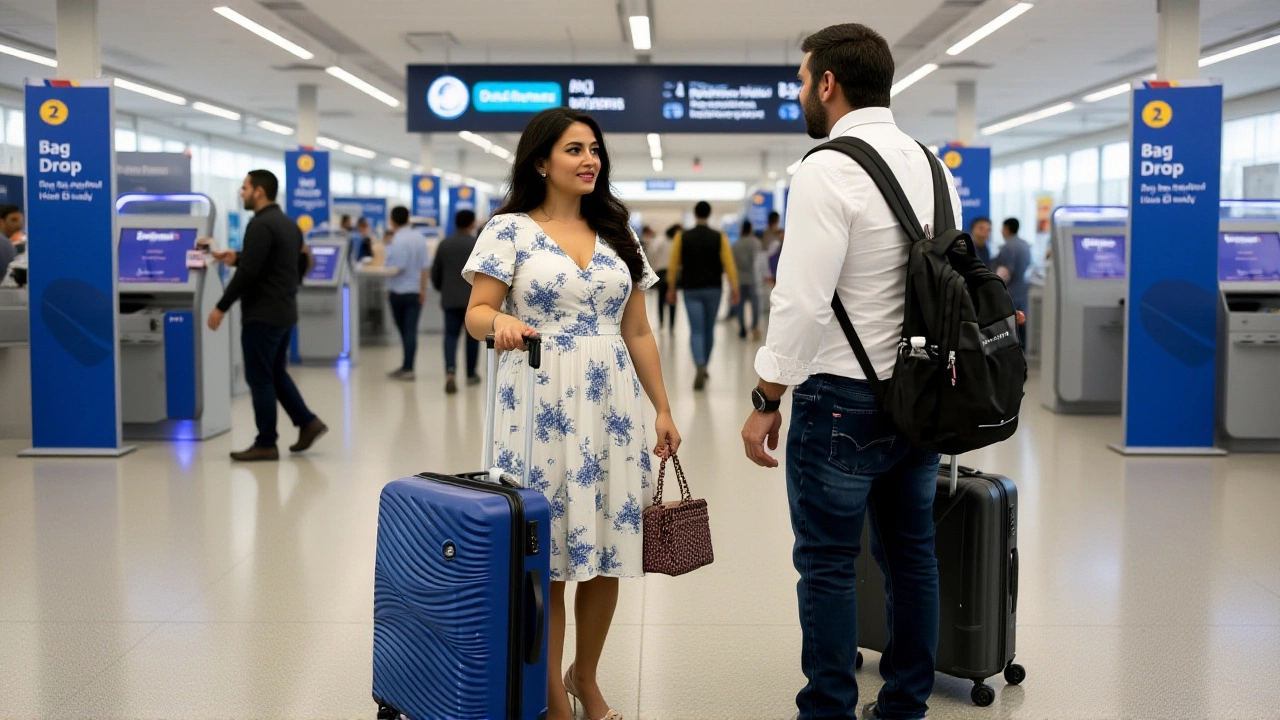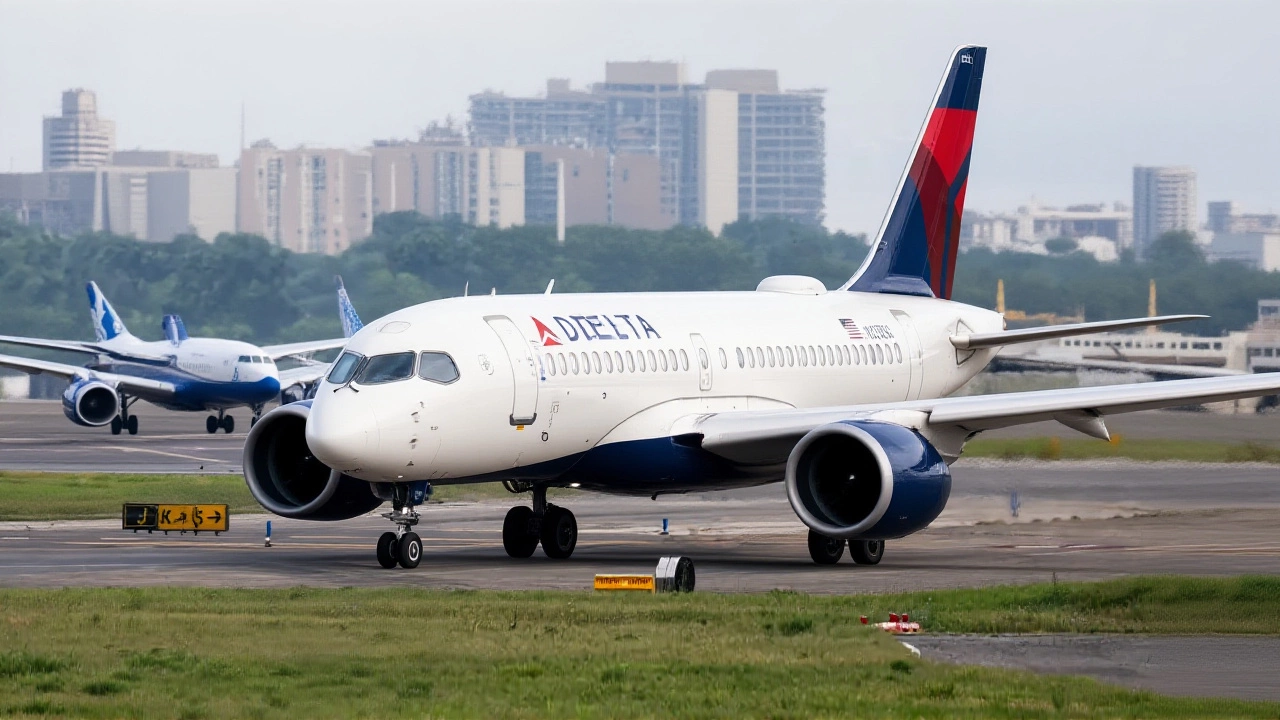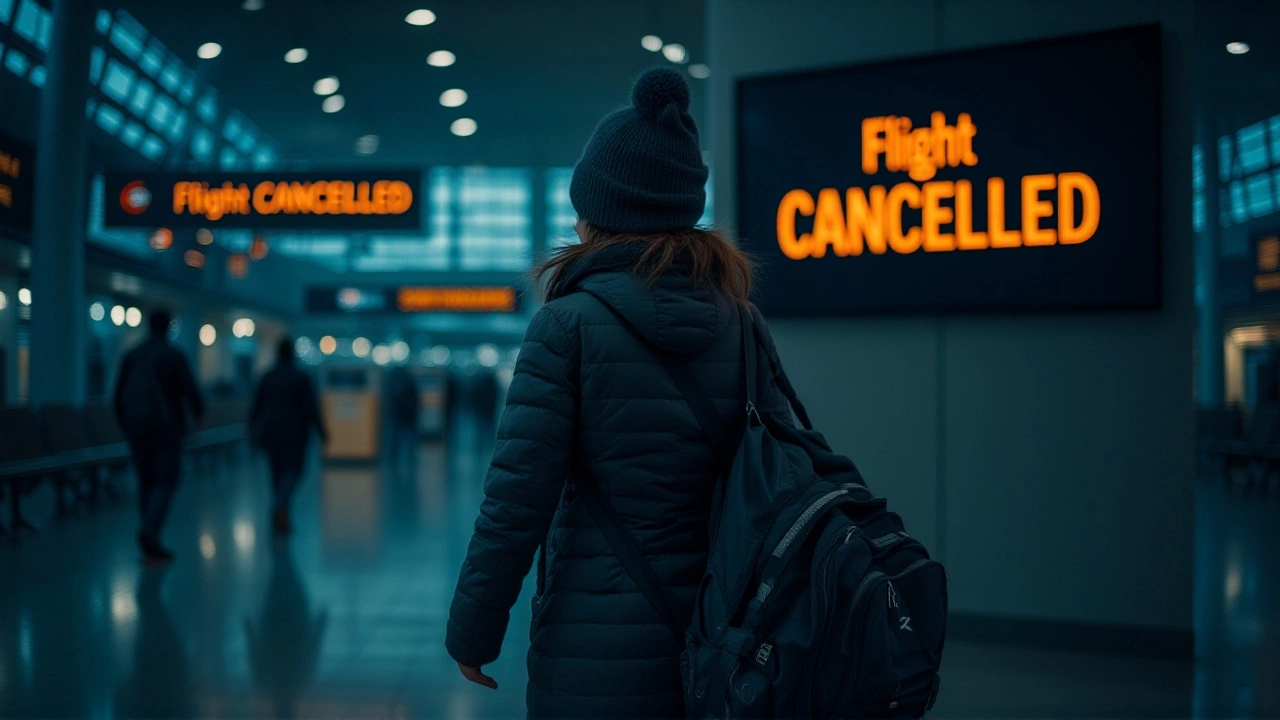When Southwest Airlines, United Airlines, Delta Air Lines, Frontier Airlines and Republic Airways all announced massive flight cancellations on Sunday, October 19, 2025, the chaos was amplified by an outage at Amazon Web Services and a smoky‑cabin incident that forced a Delta Boeing 757 to turn back to Hartsfield‑Jackson Atlanta International Airport. The Federal Aviation Administration later confirmed that while weather played a minor role, the primary culprits were the AWS technical failure and the Delta flight emergency.
Background: A Season of Turbulence
Air travel in the United States has been humming along a busy schedule this fall, with holiday‑bound shoppers and business travelers alike crowding the nation’s busiest hubs. Yet behind the glossy departure boards, airlines have been juggling crew shortages, aging fleets, and the ever‑looming threat of tech‑related hiccups. In July 2024, a similar AWS outage forced Delta to scrap more than 5,000 flights, costing the carrier roughly $500 million. That episode is fresh in industry memory, and many analysts had warned that a repeat could send ripples through the tightly‑woven schedule‑dependency web that modern airlines rely on.
What Went Wrong: The Dual‑Trigger Event
The day began with a routine load‑shedding at the AWS data centers that support reservation and check‑in systems for dozens of carriers. By 07:42 ET, airlines reported failing to pull up passenger manifests, and the delay cascade kicked off. Within the hour, flight cancellations surged as crews were stranded on the ground without the necessary paperwork to clear security.
At 09:15 ET, Delta Flight 898 – a Boeing 757 bound for Los Angeles with 219 passengers and seven crew members – detected a faint but unmistakable smoky odor in the cabin. The pilot, following standard operating procedures, declared an emergency return to Atlanta. The aircraft touched down safely at Hartsfield‑Jackson at 09:32 ET, and all aboard were unharmed. Maintenance crews inspected the jet, finding no fire source, but the incident forced the airline to pull the flight from the schedule and add another layer of disruption.
Airline‑Specific Impacts
According to data compiled by Travel and Tour World, the numbers look stark:
- Southwest Airlines: 24 cancellations, 1,034 delayed flights.
- United Airlines: 17 cancellations, 467 delayed flights.
- Delta Air Lines: 1 major aircraft return, dozens of subsequent cancellations tied to the ripple effect.
- Frontier Airlines and Republic Airways combined: 12 cancellations, 210 delayed flights.
Collectively, more than 70 scheduled departures were scrubbed, affecting passengers on routes that stretch from San Francisco to New York, Los Angeles to Chicago, and Denver to Washington, D.C.
Key Hubs Hit Hard
Major airports such as San Francisco International (SFO), John F. Kennedy (JFK), Los Angeles International (LAX), Chicago O’Hare (ORD), and Denver International (DEN) posted delay rates above 45 % for the afternoon window. Phoenix Sky Harbor (PHX) saw a 38 % cancellation rate, as the AWS glitch prevented the airline’s kiosks from issuing boarding passes.

Passenger Experience: Stories from the Gate
Emily Torres, a Seattle‑based tech consultant, was slated to fly Southwest to Denver for a conference. “My phone kept saying ‘no connection,’ and the screens were flashing red,” she recalled. “I ended up spending six hours at the gate, watching the same error message. The airline offered a hotel voucher, but it was a $120 voucher for a $30‑hour wait. Not great.”
On the Delta side, passenger Mark Liu described the return to Atlanta as “a blanket of uncertainty.” The flight’s unplanned landing forced many downstream connections to be missed, and the airline’s re‑booking system was offline for an additional two hours.
Meanwhile, United’s social‑media team posted a live‑update thread apologizing for the “unforeseen technical difficulty,” promising refunds for all affected tickets. The Department of Transportation’s Airline Customer Service Dashboard confirms that carriers must offer refunds or alternative transportation when cancellations are within the airline’s control, which includes system outages.
Regulatory and Industry Response
The FAA released a brief statement attributing the “cascading delays” primarily to the AWS outage, noting that weather played a secondary role in certain regions, especially the Midwest where thunderstorms were reported.
DOT spokesperson Karen Alvarez highlighted that airlines are obligated to provide “adequate care” – food, drink, and accommodation when delays exceed two hours and are controllable. “We’re monitoring compliance closely and will act if passengers are denied their statutory rights,” she said.
Industry analysts, such as Jeff Caldwell of AirMetrics, warned that the incident underscores the fragility of the industry’s reliance on a single cloud provider. “Diversifying critical systems could mitigate future blackouts,” he suggested, adding that several airlines have already begun evaluating multi‑cloud architectures.

Looking Ahead: Recovery and Prevention
Delta’s website, as of 10:46 AM ET on October 20, lists updated advisories via its Delta SkyWatch service, emphasizing that most affected routes are expected to normalize by the end of the week. Southwest and United have announced that they will honor refunds for any ticket purchased after October 1, 2025, that was canceled due to the outage.
Amazon Web Services, in a terse press release, pledged to “enhance redundancy for airline‑specific workloads” and to conduct a root‑cause analysis within the next 30 days. Their spokesperson declined to comment on the exact nature of the outage, citing ongoing investigations.
For travelers, the takeaway is simple: keep an eye on airline apps, have a backup plan, and know your rights under DOT regulations. The episode may be a painful reminder of how tightly interwoven technology and aviation have become, but it also offers a chance for the industry to shore up its digital defenses.
Frequently Asked Questions
How does the AWS outage affect passengers with non‑refundable tickets?
Even if a ticket is labeled non‑refundable, the Department of Transportation requires airlines to offer a full refund when a cancellation is within the carrier’s control, such as a tech outage. Passengers can request a refund directly through the airline’s customer service portal; many carriers have already processed these requests automatically for the October 19 incident.
What steps are airlines taking to prevent a repeat of this AWS failure?
Airlines are reviewing their cloud‑dependency strategies, with several, including Delta and United, exploring multi‑cloud or hybrid‑cloud solutions. AWS itself has promised increased redundancy for airline‑critical services and a detailed post‑mortem within the next month.
Why did the Delta flight return to Atlanta instead of continuing to its destination?
The cabin crew detected a smoky odor, which could indicate an electrical fire or smoke in the ventilation system. Federal regulations require pilots to divert to the nearest suitable airport—in this case, Hartsfield‑Jackson Atlanta International Airport—until the source is identified and cleared.
What compensation are affected passengers entitled to under FAA and DOT rules?
Passengers are eligible for meals, hotel accommodations, and transportation if delays exceed two hours and are deemed controllable. Additionally, airlines must provide either a refund or an alternative flight at no extra cost. Compensation beyond these basics, such as vouchers, is at the airline’s discretion.
Will future travel plans be impacted by this incident?
Short‑term schedules are already adjusting, with many airlines adding extra flights later this week to absorb the backlog. Long‑term, the industry is likely to invest in more resilient IT infrastructure, which could reduce the likelihood of similar widescale disruptions.
